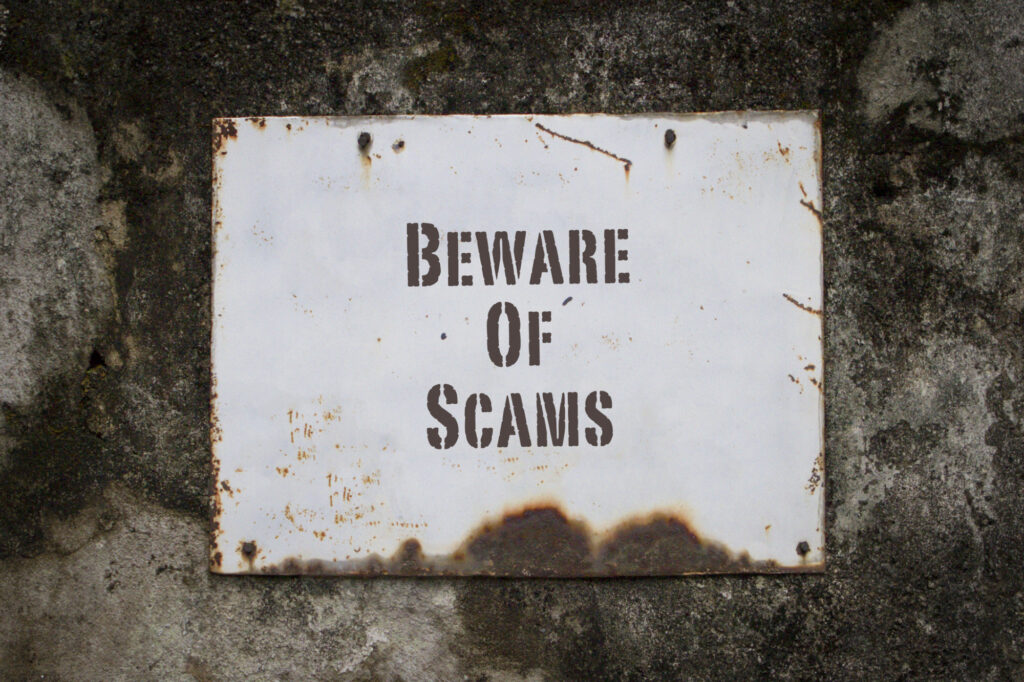Business email scams, also known as business email compromise (BEC) scams, are a type of cybercrime that involves criminals sending fraudulent emails to businesses or individuals to trick them into releasing sensitive information or transferring money.
These scams can be devastating for businesses, as they can result in financial losses, damage to reputation, and legal issues. This article will discuss what business email scams are, how to defend your business against them, and what to do if you have been targeted by one. We will also look at the future of business email scams and what we can expect in the coming years.
What is a Business Email Scam?
Business email scams, also known as business email compromise (BEC) scams, are a widespread and frequently occurring form of cybercrime. Criminals behind these scams send fraudulent emails to businesses or individuals, intending to trick them into revealing sensitive information or transferring funds.
BEC scams are notoriously sophisticated, often involving the use of fake websites and email addresses that are designed to look genuine. These scams can have severe consequences for businesses, potentially leading to financial losses, damage to reputation, and legal issues. It is crucial for companies to be aware of these scams and to take steps to protect themselves against them.
Some common types of business email scams include:
Phishing scams
These scams involve criminals sending fake emails that appear to be from legitimate sources, such as banks or government agencies, to trick the recipient into giving out sensitive information, such as passwords or log in credentials.
Invoice scams
One common type of business email scam involves criminals sending fake invoices to businesses, often requesting payment for goods or services that were never received. These scams can be extremely convincing, with the criminals going to great lengths to make the invoices appear legitimate.
They may use logos and branding similar to the business they are targeting and may even forge the signature of an honest employee.
Executive impersonation scams
These scams involve criminals pretending to be high-level executives within a company and sending emails to lower-level employees requesting sensitive information or money transfers.
Lottery scams
In this type of scam, criminals send emails claiming that the recipient has won a large sum of money in a lottery and requesting personal information or a fee to receive the winnings.
How to Defend Your Business Against Email Scams
There are several steps that businesses can take to protect themselves against business email scams:
- Train employees on recognizing and avoiding scams: Employees must know the various types of business email scams and how to identify them. This can be done through training programs and regular reminders to be cautious when receiving emails from unknown sources
- Use spam filters: Many email programs have built-in filters to help identify and block fraudulent emails. It is essential to regularly update these filters to ensure they effectively block new types of scams
- Verify the authenticity of emails: If you receive an email from a colleague or business partner that seems out of character or unusual, it is vital to verify the email’s authenticity before taking action. You can do this by contacting the sender directly or checking with other colleagues to see if they have received the same email
- Use strong passwords: It is crucial to use strong passwords for all accounts, including email accounts, to prevent criminals from accessing your accounts and using them to send fraudulent emails
- Enable two-factor authentication: Enabling two-factor authentication (2FA) on your accounts can add an extra layer of security by requiring an additional piece of information, such as a code sent to your phone, before allowing access to an account
What Should I do if a Business Email Compromise Scam has Targeted me?
If you believe that a business email scam has targeted you, there are several steps you should take:
- Do not respond to the email: Don’t respond to it or click on any links within it, as this can potentially give the scammer access to your account or personal information
- Contact the relevant authorities: If you have received a fraudulent email claiming to be from a government agency or financial institution, don’t contact that organization directly to verify the authenticity of the email. You should also report the scam to the relevant authorities, such as the Federal Bureau of Investigation (FBI) or the Internet Crime Complaint Center (IC3)
- Change your passwords: If you believe that your accounts have been compromised, you need to change them as soon as possible to prevent further access by the scammer
- Monitor your accounts: Keep a close eye on your accounts and report any suspicious activity to the relevant authorities and your financial institution
- Protect your personal information: Be cautious about giving out personal information, such as your social security number or bank account information, to anyone, even if they claim to be from a legitimate organization
What is the Future of Business Email Scams?

Business email scams will likely continue to evolve and become more sophisticated. Cybercriminals are always looking for new ways to trick people into giving out sensitive information or transferring money. They are likely to continue to find new ways to do so.
To protect against these scams, it is essential for businesses to stay up to date on the latest threats and to implement strong security measures, such as training employees on how to recognize and avoid scams, using spam filters and two-factor authentication, and regularly updating passwords.
Conclusion
Business email scams can devastate businesses, resulting in financial losses, damage to reputation, and legal issues. To protect against these scams, it is crucial to train employees to recognize and avoid them, use spam filters and two-factor authentication, and verify the authenticity of emails before taking action.
If a business email scam has targeted you, it is crucial to report the fraud to the relevant authorities and take steps to protect your accounts and personal information. Business email scams will likely continue to evolve, so businesses must stay updated on the latest threats and implement strong security measures to protect against them.

